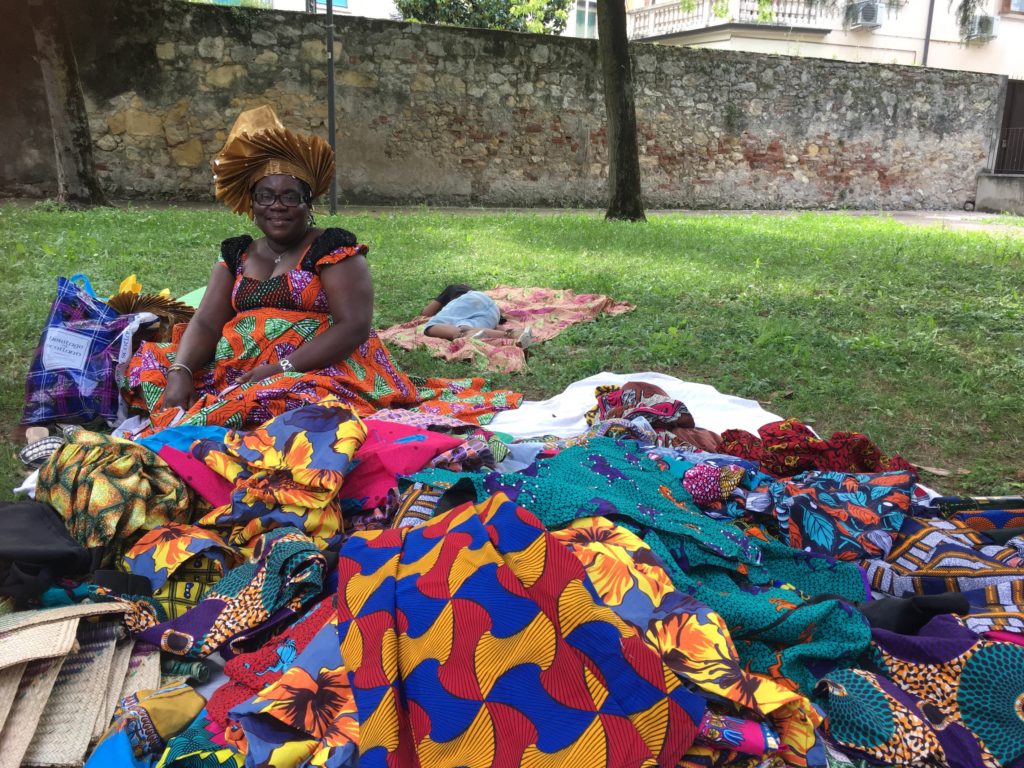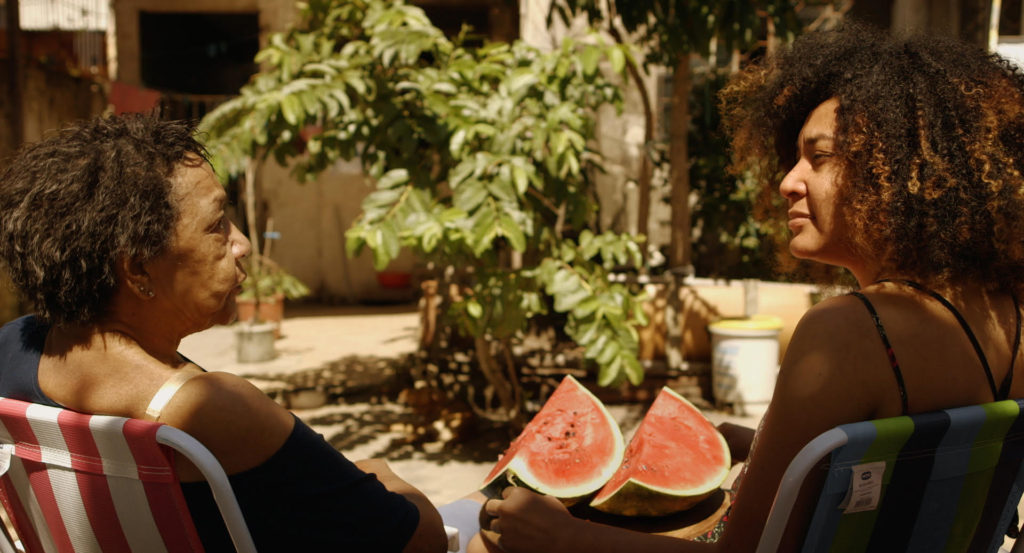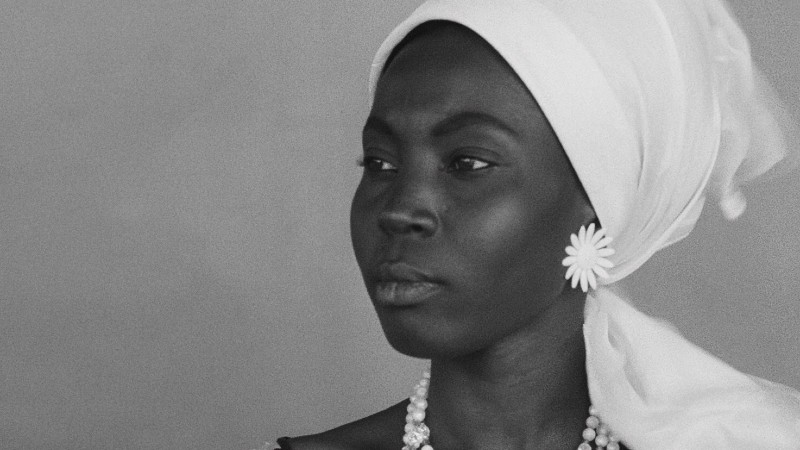Pheona Matovu, co-founder and Strategic Director of Radiant and Brighter, a Community Interest Company established in Glasgow, uses her personal experience to develop projects supporting the journey of migrants, black and ethnic minority communities, especially women, into integration.
by Juliana da Penha
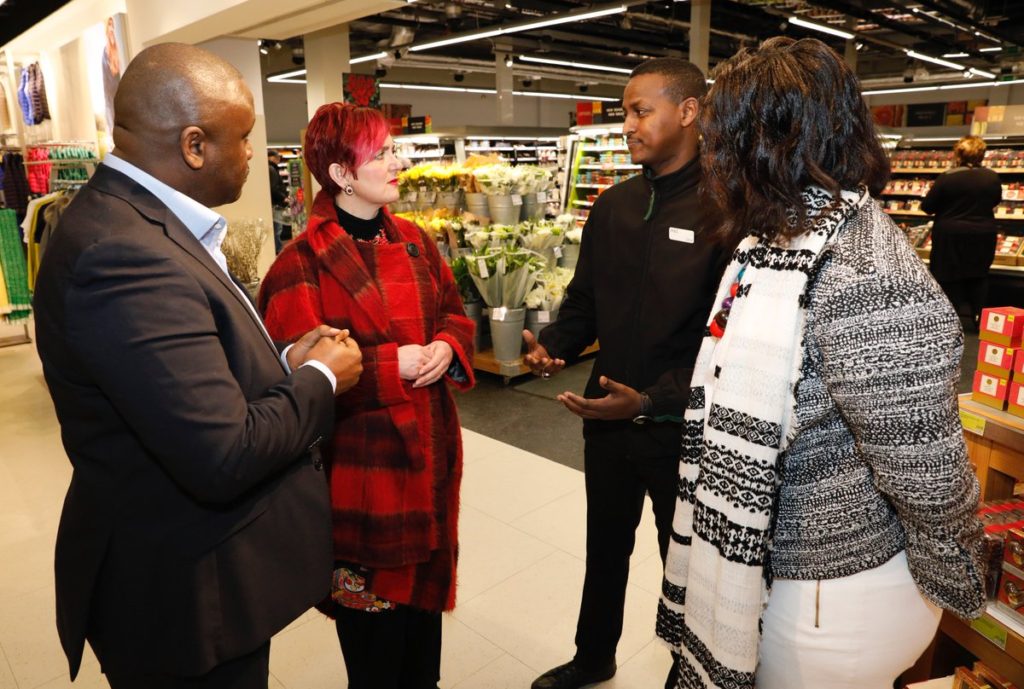
Originally from Kisoro “a really beautiful place close to where the gorilla’s mountains reside” she explained, Pheona was raised in Kampala, Uganda. She was just 23 years old when she arrived in the UK, with plenty of dreams “I wanted to do everything here, have a future, a good education”. At that time, she couldn’t imagine the struggles she would face after was denied to her and her family the right to reside in the UK. “Things got really tough”, she remembers. However, Pheona and her husband, Michael Matovu overcame the barriers and created Radiant and Brighter, an organisation supporting people who face the same difficulties they went through.
Today Pheona is an expert on diversity, an inspirational woman, and Women’s Enterprise Scotland Ambassador. The work of Radiant and Brighter is empowering migrants, black and ethnic minority communities to rebuild their confidence and improving their skills. Moreover, they are supporting business and organisations to be able to understand the value that different communities bring to Scotland.
I met with Pheona at Radiant and Brighter office in Glasgow to listen to her story, get to know more how this organisation is doing and especially about the “Women’s Leadership and Enterprise Program”, a project that is changing migrant, black and ethnic minority women’s perspectives in Scotland.
“I feel that integration suggests, in the way it’s used now, that the person who is coming in has to do all the work to be integrated. But if you do not welcome me, no matter what I do, I will never be able to integrate.
Pheona and Michael Matovu story in the UK and the birth of Radiant and Brighter in a nutshell
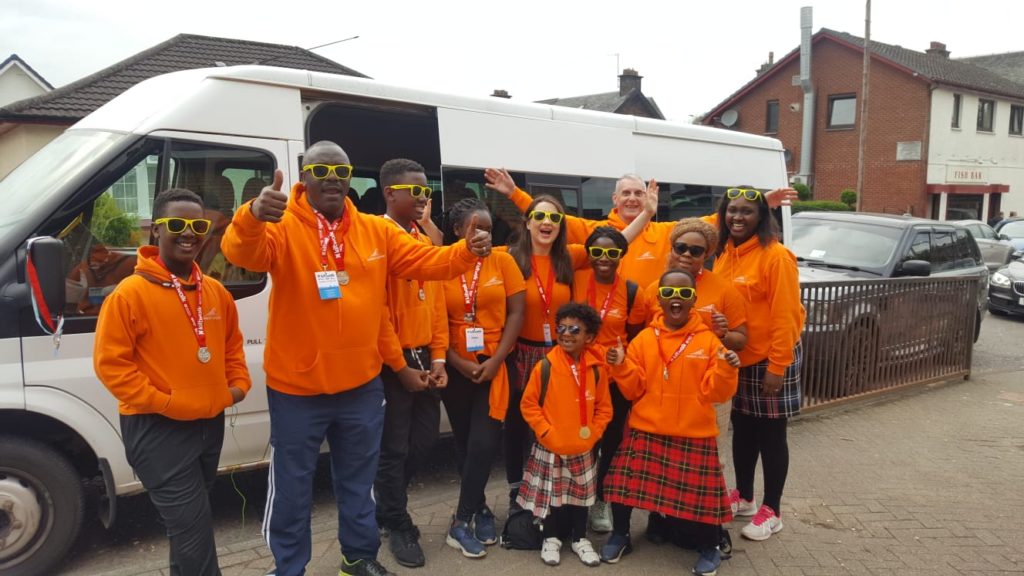
Pheona and Michael Matovu arrived in London from Uganda, where they lived and worked for 10 years. Everything was going normal until they were denied the right to live in the UK in 2007. They appealed and were refused a number of times and were unable to work or claim benefits. They moved to Glasgow and lived 5 years depending on charity, family and friends help. Because they were not asylum seekers, refugees, or British, they were not allowed to get support from public funding. They lived in limbo. They made a fresh application and in 2012 and were granted a leave to remain. However, they didn’t imagine that the challenge was going to be greater when they’re unable to find work, even with a lot of experience and after volunteering, due to many reasons such as these 5 years unemployed and racism. So, they created with Radiant and Brighter, to provide the support they didn’t find to other people. Radiant and Brighter is a Community Interest Company since 2012 promoting diversity through education, inspiration and changing perceptions in Glasgow, Scotland.
Interview with Pheona Matovu

What were your dreams and expectations before arriving in the UK? What did you want to do here?
Pheona: I wanted to do everything here; have a future, a good education. The education back home is like the banking model education: they give you information, you repeat it and you pass. I can’t just repeat information, I have to understand to be able to repeat it. I thought I was going to be rich within 5 years because I would work very, very hard (laugh). Back home 4.000 shillings is 1 pound. So, I thought, even if is just 100 pound a week, I will be rich. It never occurred to me the standard of living here is very different. I just thought “I will work so hard, all day, I will save and in one year I will have 10.000 pounds. I will go back home, and it will be perfect. I will build a big house. And I will not need to come back to the UK, I will have education and money”.
“We come from a different perspective; it’s not that we just want to help people, we want to ensure that the value of migrant communities is appreciated in Scotland.”
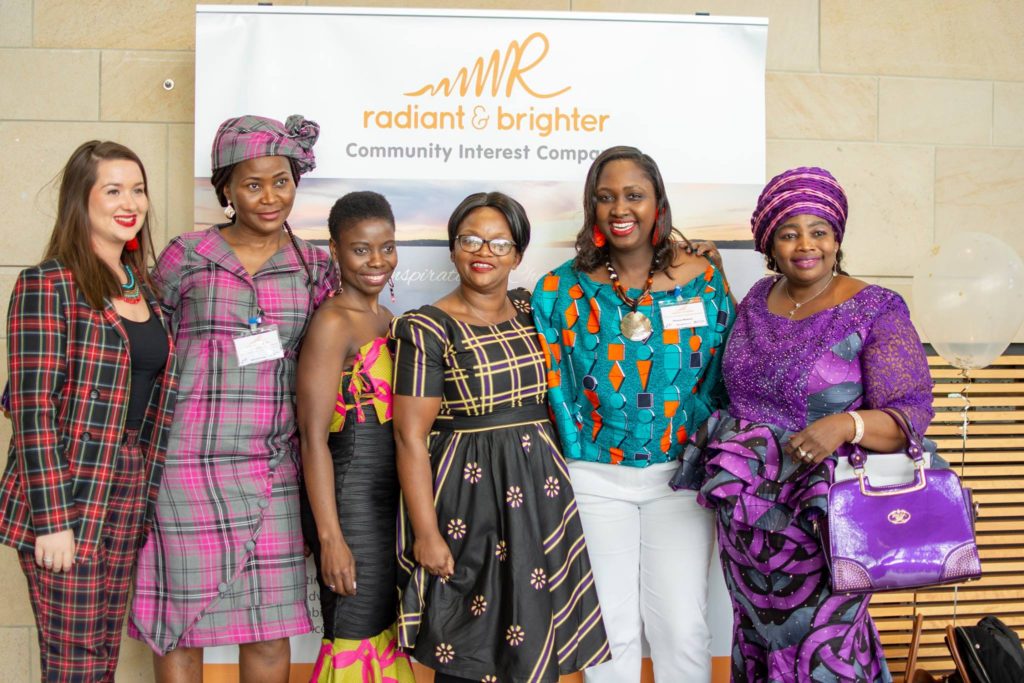
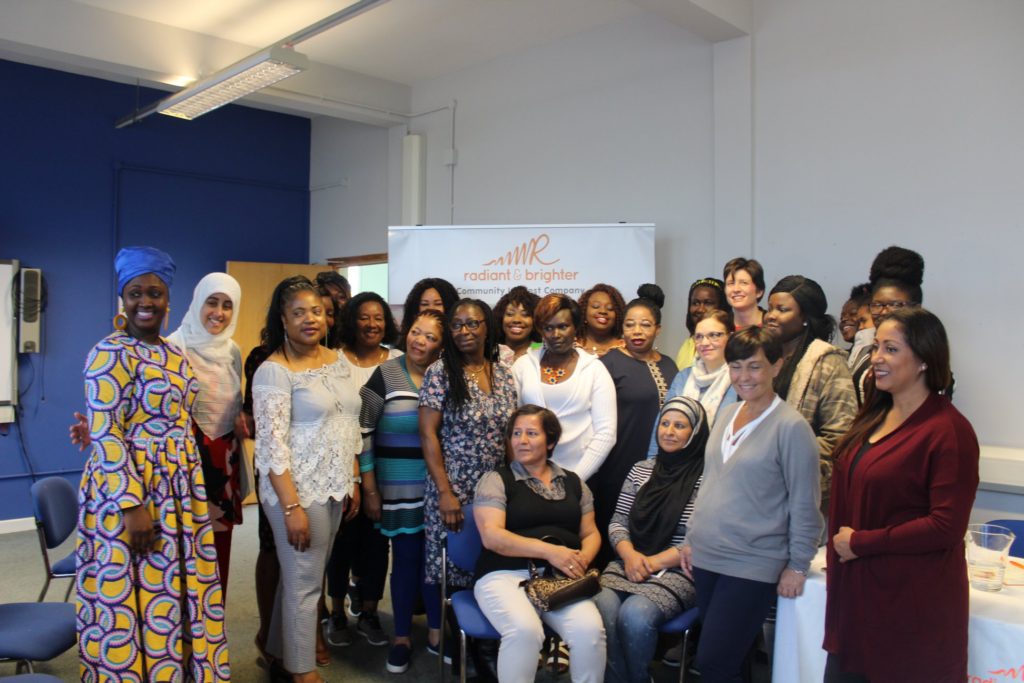
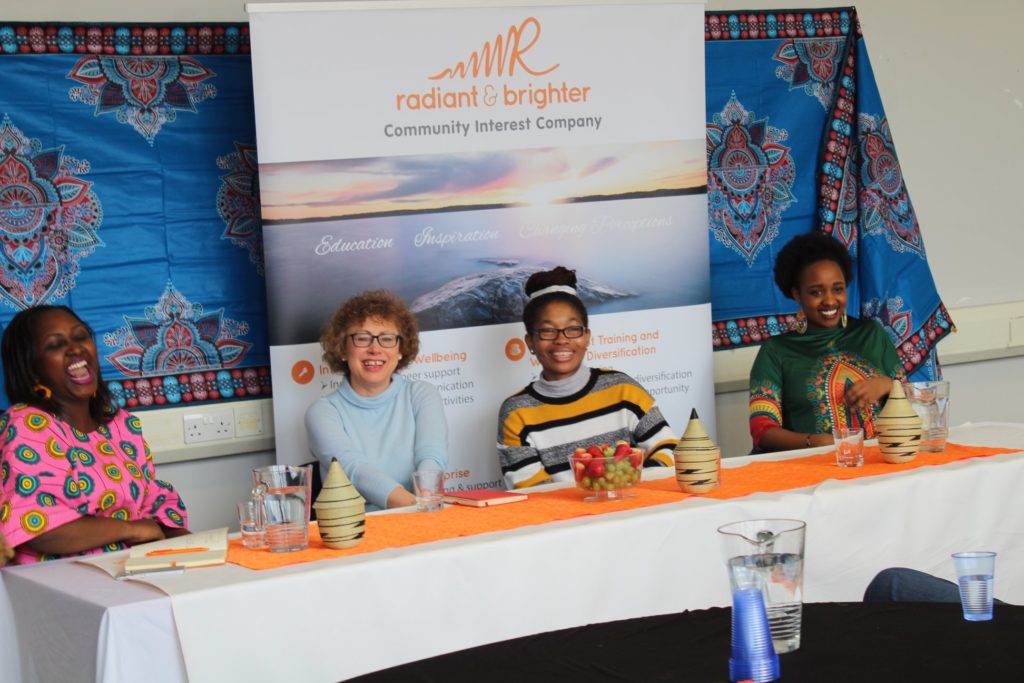
In one of your interviews, you said that “Integration doesn’t stop at learning a language. You need to become part of the community” What do you mean of be part of the community?
Pheona: I don’t know how it is in your culture but in my culture, if somebody turns up in my village, in Kisoro (Uganda) we will welcome the person. We will do so much, we will cook for you, we will give you our last chicken, we will prepare a meal for you and all you have to do is be there, be present and be pleased. We will do so much to make you welcome. I feel that integration suggests, in the way it’s used now, that the person who is coming in has to do all the work to be integrated. But if you do not welcome me, no matter what I do, I will never be able to integrate. So, integration it’s about assuring that people are able to contribute, to be valued, to be appreciated, socially and economically. If I already have children, I am able to support other children in the local community. If I already came here as a banker, I might not be able to work as a banker but there are skills that I can use. Integrating is being part of that community, contributing, being valued, valuing others, being accepted and accepting others. But also, beyond that, dignity as a human being, that is lost through the process of working hard to integrate, really need to be rescued. We don’t want to lose people. People have lost their lives. People have taken their lives. People develop mental health issues just because they haven’t been supported enough to integrate. There are so many people who speak good English that come from English speaking countries but haven’t been able to integrate. That’s is not something that benefits anybody. So, let’s do something so that the skills are appreciated, the qualifications are applied. We were colonised by the British and our education system come from here. So, for me come here and my qualification not applicable was unbelievable.
There are many organisations in Scotland supporting migrant communities but Radiant and Brighter were created by people who went through all the issues and know exactly what are the problems migrants face. Could you speak about it? What is the difference Radiant and Brighter is bringing?
Pheona: The work we do is positioned between the communities and mainstream support. Everything we do has to be educational, inspirational and works towards changing perceptions. The perceptions of people that are new to Scotland or to the UK but also perceptions of people who are indigenous in Scotland or to the UK. Radiant and Brighter is unique in the sense that although there are so many organisations doing different things, our work is to ensure that that support is meaningful, relevant and accessible. We come from a different perspective; it’s not that we just want to help people, it’s that we want to ensure that the value of migrant communities is appreciated in Scotland so that the potential of those that come here is appreciated to the extent that they are able to contribute socially and economically to Scotland. But also, because is beneficial not just to migrants but to all of us.
So, integration it’s about ensuring that people are able to contribute, be valued and appreciated, socially and economically.”
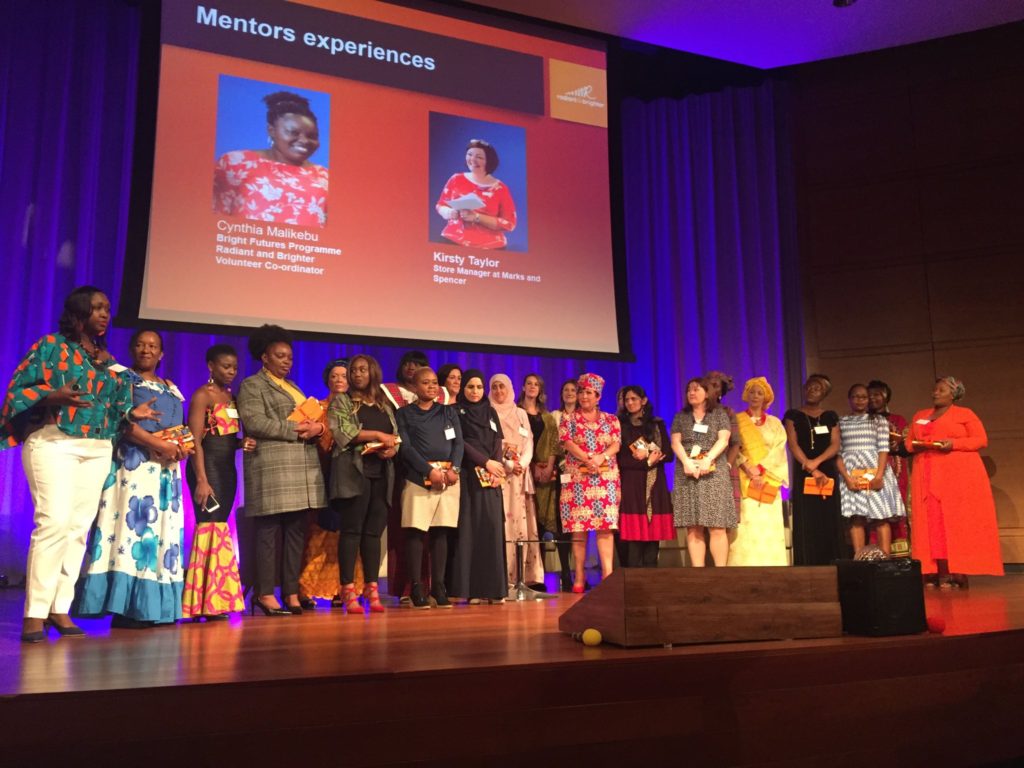
Migrants and refugees lose their self-confidence navigating the immigration and asylum process, a system suggests you are a “burden”, “not wanted”, “useless” and people start to internalise that. I was watching one of your videos about the Women’s Leadership and Enterprise Program and you and a group of women were speaking about how the project helped them to rebuild their self-confidence and move forward. What this project is doing with these women?
Pheona: This program is running for 2 years and you have to experience it to understand it. We all struggle to explain what happens in that project. What is happening there? I think people just come, they are valued and they are allowed to contribute. It has been described by some of the women that when you are in there, there is so much learning, people are sharing their experiences and their stories. People are talking about the wider perspective and the situations that happened to us. We are talking about the learning that comes out. Is like a buffet: you come, share your expertise and by the end, you go away with something for yourself. After this, people come and say: “I went back to University”, “I started my own business”. Honestly! This is an amazing shared learning space. Nobody there is a teacher, we are all experts of our own lives. So, I share my expertise, you share your expertise and by the end, I am sure to go away with something for myself. I think when you create a space, where people feel safe, secure and humane, they are able to speak from a deeper place and learn from each other. The challenge we have is that a lot of the issues women went through, dehumanized them. Many of their experience suggests they are not worthy. We internalised what was told about us, the labels that were placed on us and even we start to see ourselves in that way. When someone puts humanity into it, accepts you, somehow your dignity comes back. We had one of the women that said to us she was suffering from an illness; I don’t remember what kind. She said when she started to come to the project, suddenly, she felt better. I am not claiming that we heal people, but I am suggesting that, in an environment that you are safe, you are heard, you are appreciated, you are valued, you get a sense of community, a sense of care, where no one is judging you or making you feel any less because you are a migrant, that is what changes people’s lives.
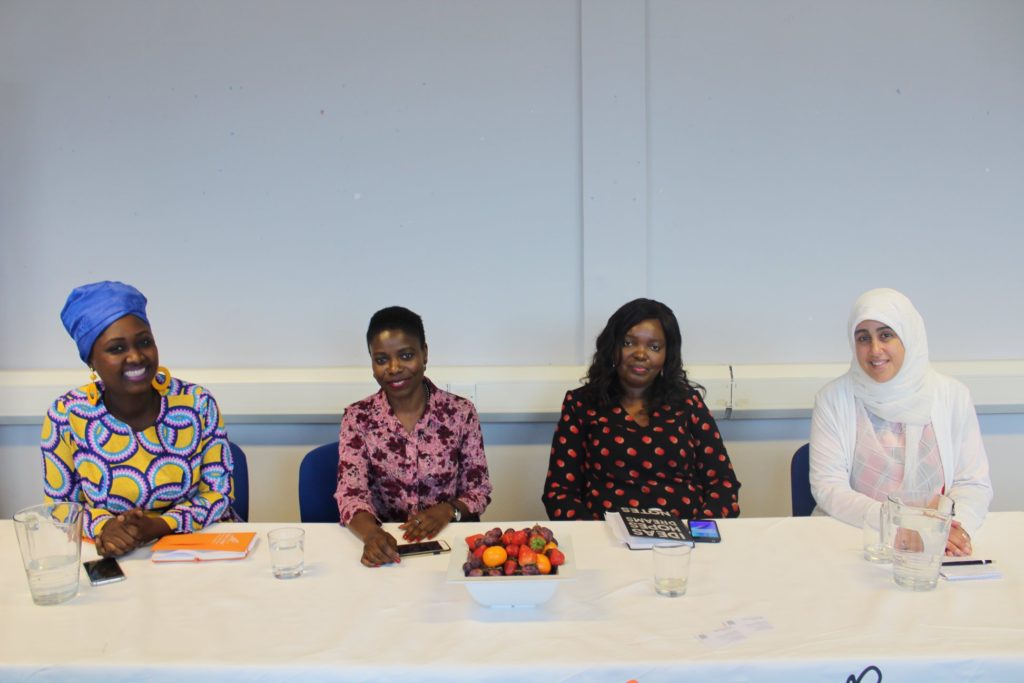
“I think when you create a space, where people feel safe, secure and humane, they are able to speak from a deeper place and learn from each other.”
What were the motivations to launch the Women’s Leadership and Enterprise Program?
Pheona: This program has been running since 2018. Radiant and Brighter was incorporated as a community interest company in 2014. Over the years we started to run programs and we had more men than women. In one room we had 10 men in a 1 woman. Honestly, I thought we didn’t have a lot of women of colour in Scotland. I thought we had just a few. I knew that some of them were stuck in the house because of childcare as well. I knew some of the mums, as I was once, were isolated. The turning point for me was when we started to go to major events and meetings, in Parliament, government, economic forums and we find like 400 people. I started to go speaking in different places as well and out of these 400 people I found only one woman of colour in there. 1 out of 400 people! Or I was speaking at one event, I look around and I was the only one. I started to feel a conviction within me that surely, I didn’t want to keep going on my own here. One, it was lonely, and two, I just felt like I need to come along with other women. I wanted to have other women who see what I was seeing. And I was learning a lot about the structures, systems and process and how they keep you at the bottom, struggling. I really wanted to make other people know about it, but especially I wanted women to know about it. I have a little girl and I want to see more positive role models for her. I couldn’t see any role models there. I was going alone. So, I thought I would like to see a bit more work with women and I applied for a fund to work with women. I thought if I could find 15 that would be great, it would be amazing. I had been to other groups as well and I hadn’t seen so many women. I thought if I could have 15 women sitting around the table it would be phenomenal. After the first 4 meetings, we had 20 women; by the time we got to the third month we had 40 women, by the time we got to the 8th month, we had 60 women; by the time that particular program finished, we had 120 women! And I was like: where all are these women been? We stopped advertising.

You mentioned the importance of have ownership and share our stories? Why this is important?
PM: I watched the Chimamanda Ngozi Adichie speech “The danger of a single story” and realized how important is to share our own story. If I don’t tell you my story, what story do you know about me? If I ask you, you probably know a different version because if you either have what you read about me or information that somebody else has told you. But that may not necessarily be my story. Particularly, when you have been oppressed, press down, discriminated and you have been labelled, you have to tell your story because then you own your story. You own the version of your story that goes out. If you tell it authentically, as a true story, it’s not the story that somebody else wants to tell of you, it’s the true story that you will tell of yourself. I think it’s really, really important. In Africa, we say that “until the lion tells his own story, the hunter will always be glorified.”
“And I was learning a lot about the structures, systems and process and how they keep you at the bottom, struggling. I really wanted to make other people know about it, but especially I wanted women know about it.”
How is the feeling today, after all these years, after facing so many challenges and then building something so meaningful to others, becoming an inspirational woman who is inspiring others?
Pheona: It’s funny, I’ve done so many interviews and I’ve never been asked that question. I don’t know… I think because it’s still a journey, sometimes we still face the same challenges we faced before but differently. I think to see you here now, specifically, is very interesting. When we got to know you I remember we were still a volunteer organisation, we were just starting out. Now we are talking at the point when we have 5 full time paid staff members, we have 2 part-time staff, it’s amazing. I also think that, when you contacted us online before we first met you, we had a little room in a place where people sometimes had to sit on the floor to study because it was so small! Now we have different rooms, for different things. It’s still something that we are learning. We haven’t learned enough to stop and celebrate but it feels me with hope. For me, for my children, for the people that we work with. We come from a situation where we were not allowed to work, not allowed to claim benefits, not allowed anything. We were depending on charity and food banks. And now being in a position where we are able to do something that supports other people such as us, fills me with hope. It makes me believe that yes, there are opportunities. And somehow what happened has been because somebody has been willing to see the value in us and open the doors for us to realise that we can bring something to others. I remember somebody saying to us when we were just starting out, we were not even Radiant and Brighter: “Do not ever underestimate your experience.” I kind of understood what they meant because they were encouraging us, I didn’t fully understand. After this, I started to appreciate the experience, I came to appreciate people and who they are, I become appreciative of the difference in a way I could never have done. I became a champion of the work we do. Do not despise a person just because you don’t know the person and you don’t understand them. I come from a family where we had a different perspective on people who don’t have enough and things like that and I’m now the first person to challenge if anybody says anything about somebody just because they are different. It’s encouraging and fills me with gratitude.
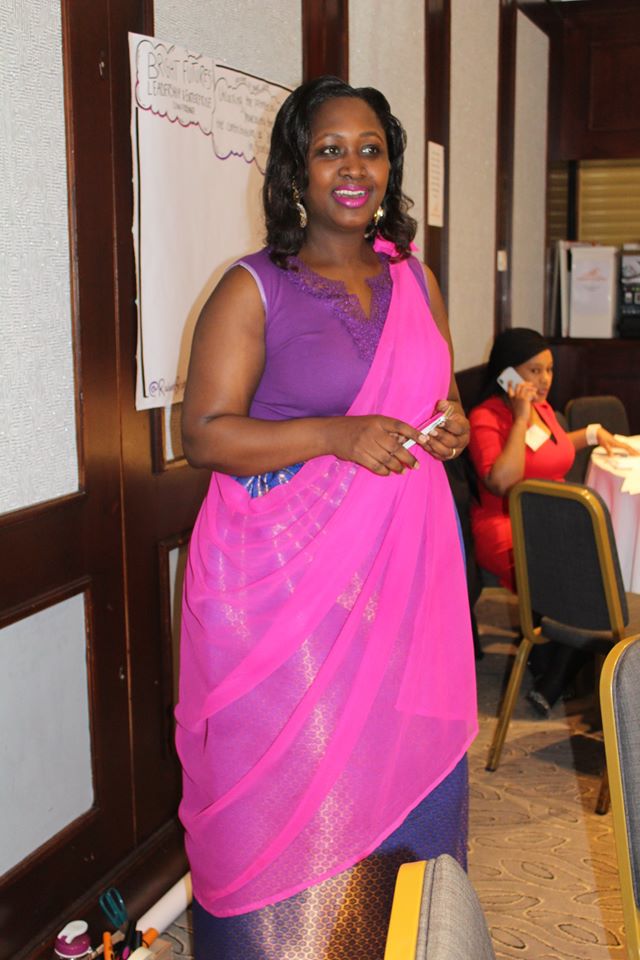
What did you bring from Uganda that is still with you today?
Pheona: There are quite a few things actually. One I think is the desire to care for other people that may not be privileged as me. I like to tell stories. I remember when I was little, my mum used to go to the village. In the village is where the plantations and the gardens are, it’s cheaper to buy food there. So, my mum would come back with potatoes, peas and then we would spend all week delivering a bag of potatoes to this person and another person. She would give neighbours and aunties who haven’t been to the village in a year or something. And I thought that is how it works, so when she was away, I would also give out sugar or something to the neighbours. I also remember this particular incident where there was a woman that used to sell us tomatoes and I went to her market stall and she wasn’t there. I knew where she lived so I went to buy from her house. I must have been about 10 years old. My mum tells this story, it’s funny. It’s not funny actually, but what I did was mad. When I went to her house, I found her baby outside crying and the not-funny part is that she was being beaten by her husband in their house. I saw the baby crying, I thought “the is baby crying, the adults are fighting” so I pick up the baby and went home. It never occurred that what I doing was anything wrong. I just picked the baby and went home and told my mom: “They were fighting so I just brought the baby.” I can’t believe my mum just let me do what I did. I fed the baby, gave the baby some milk, imagine if the baby had an allergy or anything? I just stayed with the baby. I love babies. And then after that, the woman went looking for her baby and the neighbours said, “You know the girl who usually comes to buy? Maybe she took the baby.” The woman came home and asked if we had the baby. And the baby was there happy and fine. And she said: “Thank you”. But the challenging part is that she didn’t want to go back to her husband, so she stayed there for the night. And mum knew that her husband will come to looking for her. So, we hid her in the kitchen and when he turned up, we said, “We don’t know where she is”. And my mum was like “Pheona…you will bring me problems one day!” But now I think about it. That was me, with only 10 years old. And now I am still hoping and thinking that we need to change the world, bit by bit.
We are a very diverse society . There are so many people travelling across the world. So, we need an integrated society where people can come here and be able to contribute and be part of Scottish society or the UK society fully.”
More about Radiant and Brighter: https://radiantandbrighter.com/

